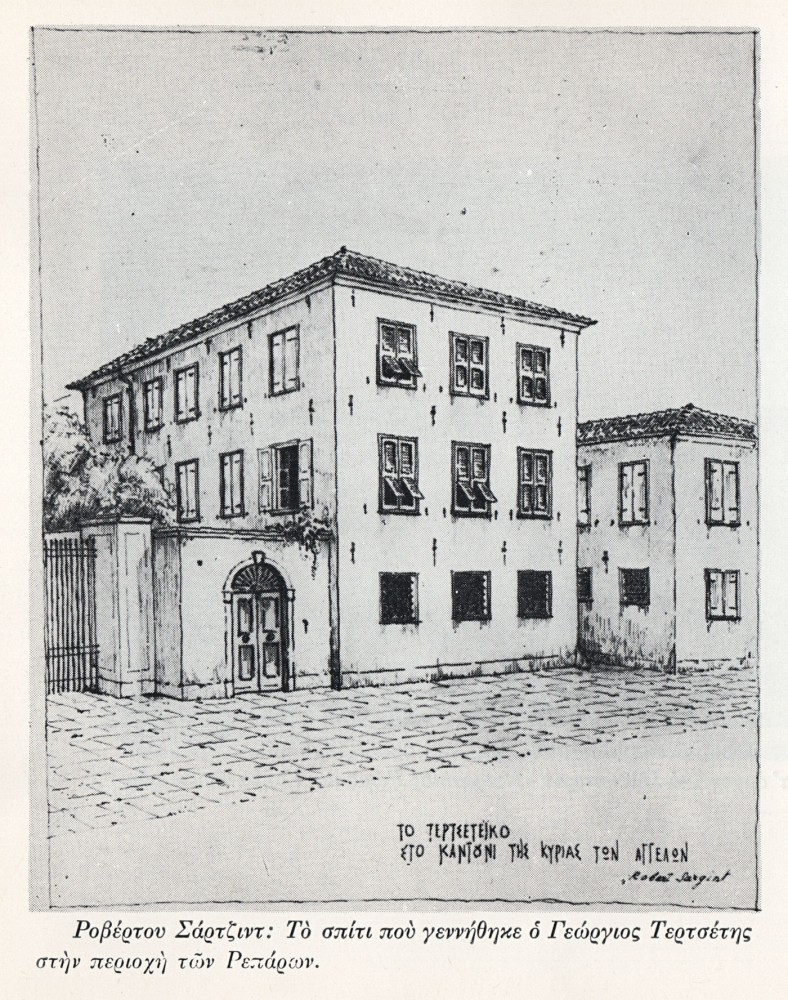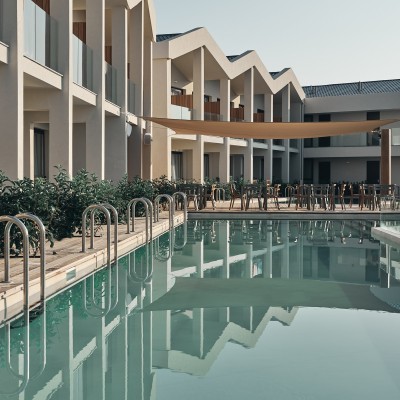
In the district of the Lady of Angels was the house where George Terseti was born in 1800 to a Catholic father and an Orthodox mother. In his childhood he attended the traditions of Antonios Martelaos along with the two older children of Kolokotronis, Panos and Gennaios. He studied law and Latin-Italian literature at the University of Padua.
A year after his return, the Greek Revolution began and Tercetis found himself in the Moria. But of weak constitution, he could not endure the hardships and fell ill. He was transferred to the small island of Kalamos and then back to Zakynthos, where he was bound by brotherly friendship with Dionysios Solomos. We owe the famous Dialogue on the language of our national poet to him, because the only surviving copy was found in his hands.
In 1832 he was appointed by the Regency of Otto as a member of the five-member court of Nafplio that tried Kolokotronis and Plapoutas. Tercetis, knowing the innocence of the accused, refused to sign the decision sentencing them to death by beheading for high treason.
This move caused his permanent suspension, imprisonment and brutal abuse by the Regency.
In 1864 he was elected representative of Zakynthos in the Parliament. He died on 15 April 1874 in Athens where he had been appointed archivist at the library of the Parliament of the newly established Greek state.




